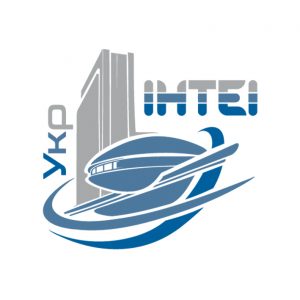http://doi.org/10.35668/2520-6524-2019-2-06
Balanchuk I.S. – Senior Researcher ofof Ukrainian Institute fоr Scientific Technical Expertise and Information, 180, Antonovycha Str., Kyiv, Ukraine, 03680; +38 (044) 521-00-37; balanchuk@uintei.kiev.ua; ORCID: http://orcid.org/0000-0002-5179-7350
INNOVATION SYSTEM FETURES OF ICELAND
Abstract. The global financial crisis has put the question to practically all countries of the world to take on the inevitable changes and take the negative consequences of the financial downturn, or to accept new revolutionary changes in all sectors of the economy and become modern competitive states, able to withstand the challenges of the modern world. Some countries have left everything as it is, others have tried to adapt to the new situation. One of these countries is Iceland. The state began structural changes many decades ago, but the crisis events of 2008 somehow accelerated this process. The post-crisis plan for the country’s exit from the financial crisis and the recovery of the economy at pre-crisis positions was adopted; subsequently, the targets were adjusted improvement of pre-crisis indicators. The essence of the plan was to make full use of the country’s natural resources for the benefit of the state, namely: tourism, geothermal energy, the fishing industry, as well as biotechnology and pharmaceuticals were to become the basic “pillars” on which the national economy was based. An intelligent approach along with original ideas has brought its positive results: over the years Iceland has become one of the leaders in Europe for a number of indicators, namely: annual tourist flow, production and export of fish, use of renewable energy sources for their own needs, life expectancy, etc. In 2018, the government of Iceland created a new state development plan aimed at consolidating the results of previous years and improving individual indicators. It was decided to pay more attention to the latest innovation processes both in the state and in the world as a whole, as well as the development and support of innovative enterprises to update all components of the Icelandic economic system. Judging by the pace of development shown by this northern country, the results from the implementation of the points of the new plan will be more than positive.
Keywords: Iceland, post-crisis plan, innovative enterprises, economic system, gross domestic product, renewable energy sources.
REFERENCES
- Iceland Economy Profile 2018. IndexMundi. Retrieved from: https://www.indexmundi.com/iceland/economy_profile.html.
- STI Outlook 2016 Country Profile – Iceland. Retrieved from: https://www.innovationpolicyplatform.org/content/iceland.
- Policy and action plan 2017-2019. – The Science and Technology Policy Council. Retrieved from: https://www.government.is/library/01-Ministries/Ministry-of-Education/Policy%20and%20action%20plan%202017-2019.pdf.
- Ingólfur Ásgeir Jóhannesson. ResearchGate. Retrieved from: https://www.researchgate.net/profile/Ingolfur_Johannesson.
- Kristin Bjornsdottir. ResearchGate. Retrieved from: https://www.researchgate.net/profile/Kristin_Bjornsdottir2.
- Rannveig Traustadottir. ResearchGate. Retrieved from: https://www.researchgate.net/profile/Rannveig_Traustadottir.
- About Rannis. Rannis. The Icelandic Centre for Research. Retrieved from: https://en.rannis.is/activities.
- Patrick Crehan, Jørn Bang Andersen. A Post-Crisis National Innovation Model. The Case of Iceland. Retrieved from: http://www.cka.be/download%20content/The%20PCIM%20-%20Iceland.pdf.
- Oddnẏ Pṓra Ṓladṓttir. Tourism in Iceland in Figures. Retrieved from: https://www.ferdamalastofa.is/static/files/ferdamalastofa/Frettamyndir/2017/juli/tourism-in-iceland-2017-9.pdf.
- Number of visitors. Ferda Mala Stofa. Icelandic Tourist Board. Retrieved from: https://www.ferdamalastofa.is/en/recearch-and-statistics/numbers-of-foreign-visitors.
- Justin Worland. A Solution to Our Clean Energy Problem May Lie Right Beneath Our Feet. Retrieved from: http://time.com/4844086/geothermal-energy-iceland-deep-drilling-project.
- Ivana Kottasová. Iceland is bringing geothermal heating to China. Retrieved from: https://edition.cnn.com/2018/09/27/business/china-iceland-geothermal-energy/index.html.
- Share of renewable energy in gross final energy consumption. Eurostat. Retrieved from: https://ec.europa.eu/eurostat/tgm/table.do?tab=table&init=1&language=en&pcode=t2020_31&plugin=1.
- The State of World Fisheries and Aquaculture. Food and Agriculture Organization of the United Nations. Retrieved from: http://www.fao.org/3/i9540en/I9540EN.pdf.
- Statistical Country Profiles – Iceland. – World Intellectual Property Organization. Retrieved from: http://www.wipo.int/ipstats/en/statistics/country_profile/profile.jsp?code=IS.
- Gunnar H. Gunnlaugsson, Margret Oddsdottir, Jonas Magnusson. Surgery in Iceland. Retrieved from: https://jamanetwork.com/journals/jamasurgery/fullarticle/398084#SEC8.
- OECD Health Statistics 2018. Organisation for Economic Co-operation and Development. Retrieved from: http://www.oecd.org/els/health-systems/health-data.htm.
- Global Innovation Index 2018. The World Intellectual Property Organization. Retrieved from: http://www.wipo.int/edocs/pubdocs/en/wipo_pub_gii_2018.pdf.
- Þorvaldur Finnbjörnsson.The New Research and Innovation Policy of Iceland. Retrieved from: https://www.fpol.no/iceland.

